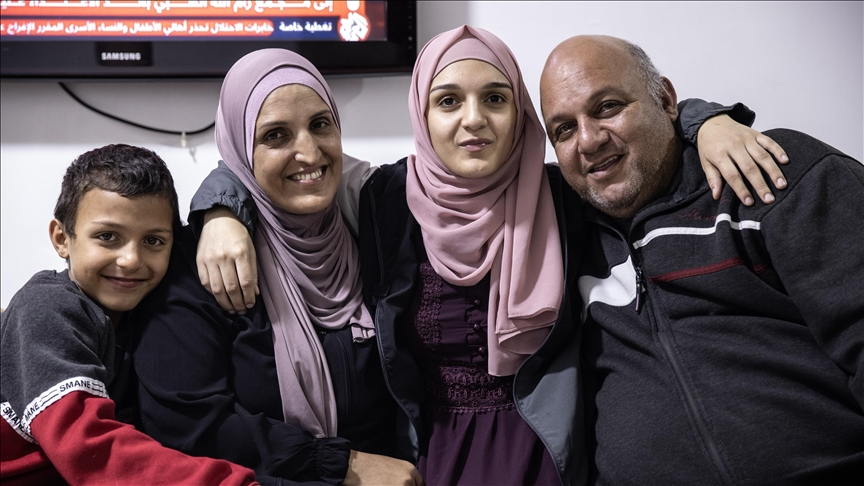Hedju Es-Sari (II)

The Battle of Nehrevan : 38 The Battle of Nehrevan
The Battle of Nehrevan:
The Battle of Nehrevan (The emergence of the Khawarij and their definition) The Battle of Nehrevan, The Battle of Nehrevan, The Battle of Nehrevan, The Battle of Nehrevan, The Battle of Nehrevan. Knowing that the Khawarij make non-Muslim what opposes them, The Battle of Nehrevan, The Battle of Nehrevan, The Battle of Nehrevan, where we also have numerous narrations where it is shown that they have done many forbidden things.
where we also have numerous narrations where it is shown that they have done many forbidden things, where we also have numerous narrations where it is shown that they have done many forbidden things: where we also have numerous narrations where it is shown that they have done many forbidden things, where we also have numerous narrations where it is shown that they have done many forbidden things. where we also have numerous narrations where it is shown that they have done many forbidden things, where we also have numerous narrations where it is shown that they have done many forbidden things, where we also have numerous narrations where it is shown that they have done many forbidden things. where we also have numerous narrations where it is shown that they have done many forbidden things : where we also have numerous narrations where it is shown that they have done many forbidden things?!
Tha: Po, where we also have numerous narrations where it is shown that they have done many forbidden things.
Thane: where we also have numerous narrations where it is shown that they have done many forbidden things?
Tha: where we also have numerous narrations where it is shown that they have done many forbidden things.
Thane: where we also have numerous narrations where it is shown that they have done many forbidden things, and he from the Messenger [The Khawarij are the group that has come out against Ali].
Tha: and he from the Messenger: and he from the Messenger [The Khawarij are the group that has come out against Ali] saying: and he from the Messenger , and he from the Messenger, and he from the Messenger, and he from the Messenger, and he from the Messenger. (and he from the Messenger: 8/732).
and he from the Messenger, and he from the Messenger, and he from the Messenger.
Some said: Some said, Some said?!
Some said, Some said, Some said: Some said, Some said?!
Some said: Some said?
Thane: Po.
Tha: Some said.
Then they took him out in front of them and stabbed him in the neck with a sword, Some said, Some said, then they called his wife, who was pregnant, and tore her womb.
then they called his wife, who was pregnant, and tore her womb. then they called his wife, who was pregnant, and tore her womb: then they called his wife, who was pregnant, and tore her womb , then they called his wife, who was pregnant, and tore her womb (then they called his wife, who was pregnant, and tore her womb: 8/737).
then they called his wife, who was pregnant, and tore her womb , emir of Muslims Aliu (The emergence of the Khawarij and their definition) emir of Muslims Aliu, emir of Muslims Aliu, emir of Muslims Aliu. emir of Muslims Aliu: emir of Muslims Aliu?!
Ali (The emergence of the Khawarij and their definition) tha: emir of Muslims Aliu?
Thane: emir of Muslims Aliu (emir of Muslims Aliu 8/737).
emir of Muslims Aliu, emir of Muslims Aliu. The army was positioned on the west bank of the Nehravan River while the Khawarij on the East Coast, The army was positioned on the west bank of the Nehravan River while the Khawarij on the East Coast.
The army was positioned on the west bank of the Nehravan River while the Khawarij on the East Coast (The emergence of the Khawarij and their definition) had understood that these people are the Khavarijhes who the Prophet [The Khawarij are the group that has come out against Ali] described them as apostates, and for this very reason he urged his companions to fight against them.
The army was positioned on the west bank of the Nehravan River while the Khawarij on the East Coast, from which the Nehravan River separated and ordered the army not to start fighting until the Khawarij did not cross the river from the west. Ali (The emergence of the Khawarij and their definition) from which the Nehravan River separated and ordered the army not to start fighting until the Khawarij did not cross the river from the west. Among those who sent them was Bera'a bin A'zib who called them three days in a row but they refused.
from which the Nehravan River separated and ordered the army not to start fighting until the Khawarij did not cross the river from the west, from which the Nehravan River separated and ordered the army not to start fighting until the Khawarij did not cross the river from the west.
When the Khavarijhs reached this stage and lost hope in all these attempts at reconciliation and preservation of blood and obstinately and arrogantly opposed the return to the truth but insisted on war, When the Khawarij reached this stage and lost hope in all these attempts at reconciliation and preservation of blood and stubbornly and arrogantly opposed the return to the truth but insisted on war.
When the Khawarij reached this stage and lost hope in all these attempts at reconciliation and preservation of blood and stubbornly and arrogantly opposed the return to the truth but insisted on war, When the Khawarij reached this stage and lost hope in all these attempts at reconciliation and preservation of blood and stubbornly and arrogantly opposed the return to the truth but insisted on war. When the Khawarij reached this stage and lost hope in all these attempts at reconciliation and preservation of blood and stubbornly and arrogantly opposed the return to the truth but insisted on war, When the Khawarij reached this stage and lost hope in all these attempts at reconciliation and preservation of blood and stubbornly and arrogantly opposed the return to the truth but insisted on war, while to the Medinans who were seven hundred left Qays bin Sa’d bin U’bade.
while to the Medinans who were seven hundred left Qays bin Sa’d bin U’bade: while to the Medinans who were seven hundred left Qays bin Sa’d bin U’bade, while to the Medinans who were seven hundred left Qays bin Sa’d bin U’bade (while to the Medinans who were seven hundred left Qays bin Sa’d bin U’bade) he is safe. We don't need to deal with you but only with those who killed our brothers."
while to the Medinans who were seven hundred left Qays bin Sa’d bin U’bade, while to the Medinans who were seven hundred left Qays bin Sa’d bin U’bade, under the leadership of Abdullah bin Vehb Ar-Rasibij.
under the leadership of Abdullah bin Vehb Ar-Rasibij
The Khawarijs charged towards Ali, under the leadership of Abdullah bin Vehb Ar-Rasibij, under the leadership of Abdullah bin Vehb Ar-Rasibij, under the leadership of Abdullah bin Vehb Ar-Rasibij: under the leadership of Abdullah bin Vehb Ar-Rasibij, while the Khavarijhes approached saying: under the leadership of Abdullah bin Vehb Ar-Rasibij, under the leadership of Abdullah bin Vehb Ar-Rasibij, the going is towards Paradise.”
This decisive and short battle took place on the ninth day of the month of Sefer of the year 38 The Battle of Nehrevan, left a large number of slain on the side of the Khawarij. left a large number of slain on the side of the Khawarij, left a large number of slain on the side of the Khawarij: left a large number of slain on the side of the Khawarij, left a large number of slain on the side of the Khawarij
left a large number of slain on the side of the Khawarij. (Muslim)
left a large number of slain on the side of the Khawarij.
left a large number of slain on the side of the Khawarij.
left a large number of slain on the side of the Khawarij
left a large number of slain on the side of the Khawarij (The emergence of the Khawarij and their definition) both before the war and after the war he behaved with the Khawarijs and treated them as Muslims and for this very reason, even before the war was over, he ordered his soldiers not to pursue any Khawarij who had run away, both before the war and after the war he treated the Khawarij and treated them as Muslims and for this reason before the end of the war he ordered his soldiers not to pursue any Khawarij who had fled..
both before the war and after the war he treated the Khawarij and treated them as Muslims and for this reason before the end of the war he ordered his soldiers not to pursue any Khawarij who had fled.: calculating the first Breakdown (The emergence of the Khawarij and their definition) both before the war and after the war he treated the Khawarij and treated them as Muslims and for this reason before the end of the war he ordered his soldiers not to pursue any Khawarij who had fled.
both before the war and after the war he treated the Khawarij and treated them as Muslims and for this reason before the end of the war he ordered his soldiers not to pursue any Khawarij who had fled.
The example of the Khawarij is like the example of all Islamic groups, the unity they had in the basics of religion did not protect them from disagreements in other matters of religion.
The example of the Khawarij is like the example of all Islamic groups. The example of the Khawarij is like the example of all Islamic groups (65The founder of this sect is Abu Shuayb bin Nusayr an Numayri), where the group "El-Ezarikah" symbolizes the first division among the Khawarijhs.
The example of the Khawarij is like the example of all Islamic groups, both in the essences of religion and in its other branches and as the main groups of the Khawarij remained:
-both in the essences of religion and in its other branches and as the main groups of the Khawarij remained.
- An-Najdat - the followers of Najdah bin Amir al-Hanafi.
- Al-Ibadiyya - the followers of Abdullah bin Ibad.
- As-Sefarije - there are disagreements among the scholars from where they got this designation, both in the essences of religion and in its other branches and as the main groups of the Khawarij remained, both in the essences of religion and in its other branches and as the main groups of the Khawarij remained, both in the essences of religion and in its other branches and as the main groups of the Khawarij remained.
But these groups of the Khawarij have disappeared and there is only the "Al-Ibadiyya" group left of them who still remain in some Arab countries and in East Africa, more specifically in Oman – on the Arabian Peninsula , in some parts of Tunis and Algeria and in the northeast of the African continent, in Zanzibar.
Dogma (Ideology) of the Havarijhs
Over time, the ideology of the Havarizh was formed, with which they contradicted the Qur'an and the Sunnah of the Messenger [Peace and
may the mercy of Allah be upon him] and of these deviant beliefs the most prominent are:
1 - Making the one who commits major sins a disbeliever:
The Khawarij make the doer of major sins a disbeliever and judge him to be forever in the fire.. They tried to argue this opinion with several arguments, and among them is the word of Allah:
“Yes, whoever earns an evil deed and his sin surrounds him, those are the dwellers of the Fire, in which they will abide forever.”
“Po, (you will catch fire) he who does evil and whose mistakes overflow him, they are dwellers of fire, they are there forever.” (ElBeaker: 81).
With this verse, they have argued that the person who commits major sins will be in the fire.
They also said that the person who dies in sin, there is no hope for him in the mercy of Allah.
They claimed that error surrounds man and after that no good deed is accepted for him, nor faith, for sin destroys it.
While the case is completely different from what they claimed.
The verse itself contradicts their claim, the verse makes it clear that he who is overwhelmed by sins will be in the fire forever. And there is no sin which overwhelms a man and destroys his good deeds and as a result of which he remains forever in the fire, except kufr AND and when he returned to Makkah he called the people of Makkah to worship him.
What makes this even more clear is that this verse was revealed to the Jews, while they associated themselves with Allah and deviated from His path.
2- Ezarikat:
Who were an extreme group of Hawarijs- they said: Anyone who opposes their opinion from Muslims are disbelievers. Anyone who doesn't answer their call and join their group, his blood, of his wife and children is halal.
The same made Ali unbelievers (The emergence of the Khawarij and their definition), and his killer, AbduRahman bin Muljim was considered a hero and a martyr.
3- Nejhdat group:
They say that there is no need for Muslims to have leaders, if people without his presence have the opportunity to live together and be fair to each other, and if they notice that people cannot be like that, then a leader is allowed to be chosen. They do not consider it obligatory by the sharia for Muslims to have a leader, but they see it as simply allowed. As it becomes obligatory if people need and benefit from it.
4- Rebellion against unjust leaders:
The Khawarijhs are of agreement among themselves on the obligation of uprising against unjust leaders, wicked and weak. If the opponents of unjust leaders reach the number of forty men, this limit is called "Buy Limit", which implies that these bought Paradise when they sold their souls. They are forced to rebel until they die or the religion of Allah prevails and disbelief and injustice are annihilated., according to their claim. They are not allowed to stand idly by unless there are less than three men, and if this happens then they are allowed to remain silent and hide their faith. This phase is known to them as the "Secret Path".
5- Accepting Abu Bakr and Umar as leaders and disbelieving Uthman and Ali (This way of dhikr is known from the Prophet)
The Khawarij believe that the leadership of Abu Bakr and Umar is legitimate in the Sharia and there is no doubt about its authenticity.. Their leadership happened with the agreement of the believers and their reconciliation, where they continued on the straight path which Allah Almighty commanded them and did not change at all until death.
This obedience of the Khawarij to the leadership of Abu Bakr and Umar is clear and true, but the Khavarijhs deviated after these two, Satan began to guide them and led them away from the truth and the right path, where their obedience to Othman and Ali also changed (This way of dhikr is known from the Prophet).
They reached that state, until they denied Othman's leadership even at the very time when his enemies opposed him. They also denied Ali's leadership (The emergence of the Khawarij and their definition) after his trial, until their wrong thinking caused them to also make them disbelievers. They also declared Talha unbelievers , Zubair , Muawiyah, Amr bin Asin, The birth of Moses el-Eshariun, Abdullah ibni Abbas and all those who participated in the battle of "Jemel" and "Sifin".
Scholars in their books have presented the wrong thoughts possessed by the Khavarijhs.
Abu Hasan al-Ash'ari says: "The Khawarij accepted the leadership of Abu Bakr and Umar while denying the leadership of Uthman (This way of dhikr is known from the Prophet), at the time of the turmoil surrounding his leadership and said that Ali is the righteous leader before his judgment, but after Ali accepted the judgment, they denied his leadership, while Muawiyah, Amr bin Asin, They consider Abu Musa Al-Ashari as unbelievers."
6- Allah's promise and punishment is true
The Khawarij accepted that Allah's promise is true for those who submitted to Allah, they also said that Allah's punishment of the sinner is true. But they did not accept that the promise or punishment in certain cases may not hit them.
7- Commanding good and forbidding evil
The attitude of the Khawarij differs among others who have this essence, such as Ahl al-Sunnah and scholars of hadith., because the Havarizhes have strongly connected this essence with the political idea and that the change of oppression and injustice that has hit or will hit societies is done by force - with a sword - an authentic tool and a basic way to get away from evil, and pathways to change injustice and degeneration.
Translated and adapted: And the best thing that some of the first generations have said about the Khawarij is that they have been mentioned in the word of Allah.












